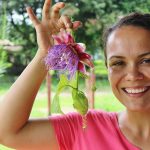2019 Gladstone Costa Rica Program

| Travel Dates: |
March 22, 2019 -
April 1, 2019
Program tuition is $3,110
|
| Group Organizer(s): |
|
| WTT Contact: |
|
| Program Tuition: | $3,110 USD |
| Deadline(s): | Enrollment opens February 1, 2018. Final payments will be due 90 days prior to travel |
Important Reminders

Passport check

Insurance Reminder

Fundraiser

Review all materials
What to Expect
Please read through all of the information below. More details will be added as your departure draws closer.
Itinerary
We do everything possible to abide by itineraries as originally planned, but decades of experience teachers that we must flexible in our planning. Changes to a trip’s schedule are uncommon, but Walking Tree reserves the right to make adjustments to programming in the best interest of the group.
| Date | Day | Location | Description | Lodging |
|---|---|---|---|---|
| March 22 | Friday | Portland, OR - San José, Costa Rica | Today the group will travel from the USA to Costa Rica, most likely arriving in the late evening. After arrival, we'll settle into our hotel for dinner and an orientation meeting where we'll discuss the upcoming trip in detail. | Hotel Casa Cielo Grande |
| March 23 | Saturday | San Jose-Pura Suerte | After breakfast we will head for Pura Suerte, an ecological farm in the heart of the jungle, about four hours south of the capital city. Upon arrival we will tour the farm for a great introduction to the bountiful flora and fauna in this lowland rainforest, visit a nearby coffee plantation and enjoy a delicious dinner. | Jungalows |
| March 24 | Sunday | Pura Suerte-Diamante Waterfall | Today we'll trek to the upper parts of Catarata Diamante, the tallest waterfall in Costa Rica. The group will hike to the rivers that feed the waterfall and then enjoy a day full of swimming holes and absolutely beautiful views. We'll spend this night in a cave behind the falls which is sure to be an early highlight on this adventure! | La Cueva |
| March 25 | Monday | Diamante Waterfall-Host Community | After breakfast we'll head down the mountain, board the bus and make our way to our host community to meet our new families. Placed in pairs, students will have dinner with their host families this evening. | Host Family |
| March 26 | Tuesday | Host Community | Each day in our host community will include a full day of work at our community service project. Lunch will be either be on-site or at home with families. In the afternoon and evening, activities will vary, but typically include spending time with host families, group excursions around the community, or activities with people from the local community. Throughout the program, we'll have opportunities to interact with community members in Spanish, participate in cultural exchanges, and explore Costa Rican culture. | Host Family |
| March 27 | Wednesday | Host Community | Today, we will continue working on our service project and spending time with host families. Evening activities will vary. | Host Family |
| March 28 | Thursday | Host Community | Today we will finish our service project and celebrate with our new friends and family with a fiesta de despedida! | Host Family |
| March 29 | Friday | Host Community - Uvita | After breakfast we willl head down to the southern Pacific Coast to the tiny town of Uvita. We'll settle into our hotel and then spend the afternoon volunteering at Reserva Playa Tortuga station doing a beach clean up. After work we can relax by the pool, and watch the sun set over Bahía Ballena National Park. | El Tecal |
| March 30 | Saturday | Uvita | Today we'll visit the stunning Parque Nacional Marino Ballena, famous for the massive rock formation shaped like a whale's tale which reveals itself at low tide. Arriving at the park, we'll be greeted by our surf instructors who will teach us how to surf with private lessons on the gorgeous beach! After the lessons and some time to swim and play in the ocean we'll enjoy a traditional lunch before enjoying a zip line tour on the mountains of Osa. After the afternoon activity and some dinner we head back to our hotel. | El Tecal |
| March 31 | Sunday | Uvita-San Jose | After breakfast we'll get ready for an action packed day. On the way back to San José, we'll make a stop at the Rio Savegre, recently declared the cleanest river in Costa Rica to go white-water rafting. Once we're off the river we'll head back to San Jose for a farewell dinner ahead of our international departure the following morning. | Hotel Pacandé |
| April 1 | Monday | San Jose - USA | After breakfast, we will head to the airport for our flight back to Portland. | Your own bed, eventually! |
Fundraising
Need to Raise Money? We Have You Covered.
Walking Tree Travel is proud to team up with Equal Exchange, a worker-owned cooperative that distributes organic coffee, tea, sugar, bananas, avocados, cocoa, chocolate bars, and more. There is no limit to the amount you can earn, so the sooner you can start, the better!
Learn more here.

Accommodations
In order to provide a safe and memorable experience, we follow strict guidelines when choosing group accommodations. Walking Tree partners with hotels and guest houses which are centrally located, locally operated, clean and safe. We inspect each partner hotel to ensure they meet these standards.

Villas Aracari
Villas Aracari is a beautiful property ideally located just twenty minutes from the airport. Close to the city center yet perched high in the mountains, the views of the Central Valley are breathtaking and the new pool is a delightful respite after a hot day. Spotless rooms and friendly staff will make you feel at home the moment you drop your bags.

Finca Pura Suerte
A grouping of bamboo cabins and impressive communal spaces, this farm is nestled deep in low-land rain forest with views of the Pacific coastline. The accommodations are comfortable, the food fantastic, and the surreal setting provides an ideal introduction to the country’s impressive flora and fauna.

La Cueva
Located in a natural cave behind the impressive Diamonte waterfall, La Cueva is not your typical hotel. Students sleep in bunk beds and there is no electricity, providing an opportunity to unplug and truly appreciate the natural beauty of these rustic accommodations behind a waterfall. Students will be grouped in their rooms according to gender and availability.

Cabinas El Tecal
Cabinas El Tecal is a locally owned and operated three star hotel close to playa Uvita in the Marino Ballena National Park. Off the beaten path, the hotel comes with modern amenities, a private pool, and great service. It’s the perfect place to relax away from the crowds. Free Wi-Fi access throughout the building keeps everyone feeling connected. Students will be grouped in their rooms according to gender and availability.

Hotel Pacandé
Located in Alajuela, Hotel Pacandé is the perfect place to start and end a Costa Rican adventure because of its warm family atmosphere and proximity to the airport. Cleanliness and service are the main qualities that differentiate Pacandé from typical hotels in the area. Free Wi-Fi access throughout the building keeps everyone feeling connected. Students will be grouped in their rooms according to gender and availability.
Group Flight
DEPARTURE FROM USA
Airline: United Airlines
Flight: UA392
Date: March 22, 2019
Departs: Portland (PDX) – 7:35 AM
Arrives: San Francisco (SFO) – 9:29 AM
Airline: Aeromexico Air
Flight: AM669
Date: March 22, 2019
Departs: San Francisco (SFO) – 2:35 PM
Arrives: Mexico City (MEX) – 8:05 PM
Airline: Aeromexico Air
Flight: AM656
Date: March 22, 2019 – March 23, 2019
Departs: Mexico City (MEX) – 9:50 PM
Arrives: San Jose, Costa Rica (SJO) – 12:50 AM
RETURN TO USA
Airline: Aeromexico Air
Flight: AM657
Date: April 1, 2019
Departs: San Jose, Costa Rica (SJO) – 1:55 AM
Arrives: Mexico City (MEX) – 5:15 AM
Airline: Aeromexico Air
Flight: AM668
Date: April 1, 2019
Departs: Mexico City (MEX) – 9:05 AM
Arrives: San Francisco (SFO) – 1:05 PM
Airline: United Airlines
Flight: UA1743
Date: April 1, 2019
Departs: San Francisco (SFO) – 5:30 PM
Arrives: Portland (PDX) – 7:11 PM
Once your flight schedule has been confirmed, the itinerary will appear here.
Walking Tree will secure a seat on the group flight for each participant unless otherwise instructed.
Travelers are responsible for checked baggage fees. Please visit the airline’s baggage webpage to learn if you should expect to pay anything.
We will provide a group manifest – complete with reservation codes and ticket numbers – to the Group Organizer/s before departure, and travelers will need to check in at the airport in order to receive their boarding pass and have documents verified. We recommend arriving no later than three hours prior to the scheduled departure, but contact your Group Organizer for specific details on exactly where and when to meet on the day of departure.
FLIGHT INTERRUPTION, DELAY OR CANCELLATION
Air travel can be unpredictable. Regardless of proper planning, there may still be instances when a flight is delayed or cancelled due to staffing shortages, weather, mechanical problems, etc. Please note that in such an event, Walking Tree Travel (WTT) is not financially responsible for unanticipated costs incurred by travelers en route. Our programs officially begin and end in the destination country, and because our staff doesn’t fly with the group, Group Organizers (the traveling faculty member/s) become the front-line advocate for the group in the event of a delay. In most cases of cancellations or delays, the airline will be the one who re-books travel or possibly arranges a hotel and food the night. Our primary role will be to keep families updated and provide support to the Group Organizer to reach a quick and effective resolution.
Host Community and Project Details
Actual community details
Most people in San Salvador work in agriculture, farming products such as beans and coffee. The town is small, with just under 300 families, and is a very tight-knit community that is always eager to receive Walking Tree groups. San Salvador has spectacular views of surrounding mountains and valleys and has breathtaking landscapes. The main soccer field is where all the action happens, there will certainly be no shortage of fĂştbol during your trip!
Typical homes that are constructed nowadays are made of concrete and cinder blocks with tin roofing. They are made this way in order to withstand earthquakes. Traditionally, houses were made of wood with clay tile roofing. In rural areas, it is much more common to see traditional style housing whereas in the city it is very hard to find. Generally, homes are sized modestly with a living area, kitchen area, cuarto de pilas (utility room) and 2-3 bedrooms. Generally, parents will share a private bedroom, but depending on the size of the family and income, kids may share a bedroom with parents. Kids will often share a bedroom, especially when they are younger. It is considered normal to live with your parents until you get married, meaning that it is not strange for someone in their late twenties or early thirties to live with their parents. It also may be common for elderly family members to live with their children if they cannot take care of themselves. You will find that in small towns, family members will construct their houses very close to their other family members, which creates a greater sense of family within the community.
Kitchens are generally very basic in small towns. Gas or electric countertop stoves are most common nowadays, but you may find that some families still stick to the traditional wood burning stoves. The kitchen will almost always be found within the home unless a wood-burning stove is used. In this case, the kitchen may be partially outside the home. Ovens, toasters and dishwashers are not common in Costa Rican kitchens. All dishes are hand washed. All houses are equipped with electricity, running water and indoor plumbing, but it is important to note that you should not flush toilet paper or other paper products down the toilet. This will clog the toilets and can eventually cause the overflow of septic tanks.
Packing List
What follows is a sample packing list, which will be updated for each program. We recommend you bring a larger piece of luggage like a roller, duffel bag, or backpack, as well as a smaller backpack that you can bring on hikes, weekend excursions and shorter activities.
“Less is more” is a packing tip we encourage for all our travelers. The below list should cover everything you would need, but we frequently hear that travelers feel “overpacked” if they follow all of our suggestions. Know yourself and what you are comfortable traveling with. We suggest bringing only as much as you would be able to carry on your own.
Please consult the 10-day weather forecast in https://weather.com and enter the cities listed in your itinerary if you desire a more detailed look at the weather you might encounter. Most importantly, be sure to remember your PASSPORT and STUDENT ID.
CLOTHES (quantities depend on your trip length) :
- Underwear
- Socks (a mixture of good hiking socks and casual socks)
- T-shirts (some quick dry)
- Long sleeve shirt
- Lightweight sweater (especially if doing service work in the communities of San Gerardo de Rivas, Herradura de Rivas, Canaán or Chimirol)
- Rain jacket or poncho
- Travel/athletic shorts that are breathable and light
- Comfortable/hiking/everyday pants (NOT all jeans)
- 1 nice shirt/top to be worn to more formal dinners (girls might want a skirt or something a little nicer for such occasions, boys may want to opt for a polo shirt or button up shirt with jeans)
- Durable athletic/hiking shoes with good grip
- Sandals (Chaco/Teva/Keen/Merrel sandals are great to have for water activities)
- Work gloves – required for service work
- Bandana for work site (optional)
- A hat that can protect your neck
- Swimming suit, for surf classes a rash guard is recommended for sensitive skins
TOILETRIES: BRING THE BASIC TOILETRIES YOU NEED PLUS:
- Sunscreen (You will use a lot. Natural products/lotions are preferred over aerosol, especially for the beach)
- Mosquito repellent (non-deet/lotions are preferred to reduce environmental impact)
- Band Aids and Neosporin
- Hand Sanitizer
- Medication in properly marked original container. It’s important that medication travel in its original container, as customs officials have the right to confiscate it otherwise.
MISCELLANEOUS:
- Sunglasses
- Journal and pen
- Book
- Camera (digital, disposable, waterproof)
- Alarm Clock and watch
- Debit card/US Dollars (we recommend about $50-$150, depending on number of desired snacks, souvenirs, extra items etc.)
- Durable water bottle
- 1 quick-dry towel
- Flashlight/headlamp
- Batteries
- Deck of cards or other portable games
- Host family gift
- Spanish/English Dictionary
HOMESTAY GIFTS
Travelers often contact us regarding what an appropriate gift might be for their student’s host family. Host families are often curious about where our students come from and their families in the U.S. As such, we recommend a simple gift that describes, represents or depicts your home. Well-received gifts in the past have included calendars or picture/coffee table books from your city or state, a framed picture of your family, paraphernalia from a local sports team, toys, soccer balls, school supplies, or something produced or grown in your hometown, like chocolate, local candy, t-shirts, etc. The most important thing to keep in mind is not to worry about this… Anything, no matter its value, will be well received!
Support Team
At a minimum, one experienced Program Leader will travel on every trip. In addition to this full time leadership presence, Walking Tree has additional staff in all destinations and 24/7 support from our headquarters in Denver, Colorado. Below you’ll find the the team members involved in the preparation, planning and execution of your program.

Gabriel Duncan
Co-Founder of Walking Tree Travel and Business Lead - Denver, CO
Colby College – B.A. International Relations and Government
While at Colby, Gabriel spent a semester in Spain at the University of Salamanca studying contemporary Spanish politics and Spanish language. He also lettered for four-years on Colby’s lacrosse team and earned All-American honors. After graduating, Gabriel hit the road. He fished commercially in Alaska, taught in Chile and China, led programs for students in Spain and Costa Rica, and traveled to over 50 countries and all 50 states in the USA. Regardless of where Gabriel is located, he is constantly haunted by his naive faith and unconditional love for Denver sports teams.

Sara Lavell
Program Leader
Universidad de Costa Rica – B.Sc. Geography
Proudly born a ”tica” with a British father and a Panamanian mother, Sara was raised in the Caribbean coast of Costa Rica. Sara started traveling the world at a young age and has visited 4 continents. Passionate about conservation, sustainable development and education Sara spent her college years volunteering in different communities during mid-term vacations and later found herself sharing some of her interests with US students and volunteers traveling all over Central America. Nowadays, Sara is finishing her master’s degree in Planning with an emphasis on Socioeconomic Project Management.

Natalia Avila Angel
Ecuador Country Director and Program Leader
International Institute of Social Studies of Erasmus Rotterdam University – M.A. Development Studies, Environment and Sustainable Development
Born in Cali, Colombia, nestled in a family-oriented, tropical environment surrounded by dance and nature, Natalia grew up between two countries during her childhood and youth: Ecuador and Colombia. From a very young age she developed strong skills in intercultural understanding, particularly between Latin American sister nations. Through her passion and talent in athletics, she has had opportunities to travel to many different countries and cities in South America. Natalia studied at a university in Germany, which allowed her to travel around Europe, where she experienced a vast array of countries and Western cultures. She later pursued a master’s degree in social studies in Holland, focusing on environmental studies. She completed research on natural biosphere reserves in the Ecuadorian Amazon and the issues facing indigenous communities there. After many adventures and experiences, Natalia fell in love with Ecuador’s natural and cultural diversity and has lived and worked in several different places along the coast, highlands, mountains and Amazon regions of the country.

Sofía Quirós
Program Leader
Universidad de Costa Rica – B.A. in Art History
New York University – M.A. in Art Education
Growing up in Costa Rica, Sofía developed an early passion for nature and the outdoors. She originally wanted to be a biologist but ended up going into the arts instead, specializing in Art Education in New York City where she lived and worked for over eight years. Having mostly worked in non-formal education settings like museums and community spaces, her work focuses on generating transformative learning experiences beyond subjects or settings.
She is passionate about critical pedagogy, community development, multicultural perspectives, and conservation efforts. She has traveled extensively (over 25 countries in 3 continents) believing that there’s nothing like traveling to expand your mindset and allow for growth and connection to new spaces, people, cultures and oneself. She currently lives in San José, Costa Rica, and among her favorite things to do are hiking, whale watching (when possible), eating delicious food, dancing and enjoying quality time with friends and family.
Group Roster
Below is a list of the travelers enrolled on the program.
- 1 Aila Mickels
- 2 Aleisha Kerr
- 3 Alexander Lue
- 4 Alysa Schlichting
- 5 Avery Marshall
- 6 Bradley Kuntz
- 7 Chloe Durrin
- 8 Claire Shields
- 9 Cloe Storer
- 10 Emma Heman
- 11 Emma Reese
- 12 Hailey Miller
- 13 Hayden Pugh
- 14 Isabelle Burns
- 15 Jenifer Gayner
- 16 JeremyClark
- 17 Kyle Burlingame
- 18 Lanie Sticka
- 19 Maia Candia
- 20 Nicholaus Pfeiffer
- 21 PetraHoghova
- 22 Rebekah Villanti
- 23 Sadie Klaus
- 24 Sarah Heman
- 25 Sophia Ameripour
- 26 Taryn Pinner
- 27 Thomas Ferguson
- 28 Tryton Jaekel
- 29 Zachary Bays
Blog and Communication
During travel we work hard to keep families updated as frequently as possible with blog posts and photos, giving you peace of mind that your traveler is safe and thriving on their program. Students regularly contribute to these posts, providing families bak home a great way to vicariously track the progress of the trip. You will be notified when the first update is posted, after which we recommend checking in regularly via the black “Program Blog” button at the top of this webpage.
Assuming your school allows the use of cell phones, most destinations are wired enough to allow participants access WiFi at different moments in the program, allowing them to communicate directly with home. Ask your Walking Tree representative about the degree of connectivity on your program.
GLC Curriculum
Walking Tree has developed a curriculum of activities meant to help travelers get the most out of their trip before departure, during travel and after they return home. These simple and engaging activities are meant to spark discussion, frame experiences, and prepare participants to travel ethically and effectively both on this trip and on future adventures.For more information about student learning objectives and the format of the curriculum, click on the ‘learn more’ button below.
To view and complete the Pre-Program Activities, visit our online portal at the button below.
Standards of Behavior
In order to run a safe and successful program, it is vital that travelers are prepared to be on their best behavior and bring enthusiasm and interest to each and every day. A communal atmosphere of trust and mutual respect is the foundational. As such, all individuals participating on a Walking Tree program are required to take responsibility for their actions and adhere to a high standard of personal conduct.
IMMEDIATE DISMISSAL
- Possessing, consuming or distributing alcohol or illegal drugs.
- Associating with participants while they are in possession of alcohol or illegal drugs.
- Behaving in a way that consistently damages the group dynamic or jeopardizes personal or group safety. This includes consistently displaying a negative attitude, intimidating or excluding other participants, sneaking out, disobeying group leaders, and any other behavior that is not conducive to an atmosphere of trust and mutual respect.
GROUNDS FOR DISMISSAL OR IN-COUNTRY CONSEQUENCE
- Getting a piercing or tattoo.
- Stealing, or deliberately damaging or defacing any personal property, buildings or materials.
- Threatening physical or emotional harm, or brandishing a weapon.
- Possessing, consuming, or distributing tobacco or nicotine, including vape pens.
- Riding mopeds, motorcycles, or any other type of unauthorized vehicle.
- Being out of designated area or accommodations after curfew.
- Breaking group rules.
These standards of behavior are essential for the successful completion of your program. Please take the time to review these as a family and make sure everyone understands and agrees to them.
Health and Safety
We strongly recommend visiting the CDC Costa Rica website to get the most updated information on health and vaccination considerations in your destination country. In addition, we encourage you to consult with your personal family physician so you can be as informed as possible when making important decisions about vaccinations and other necessary health-related preparations before travel.
Our in-country staff prepare meticulously for all programs. Walking Tree will register our programs and travelers with the U.S. Department of State Smart Traveler Enrollment Program (STEP) in case of emergency. In country staff also verify the safety records of our partner organizations, vendors, and transportation providers, thoroughly vet homestay families via in depth interviews and home visits, and keep up on important current events in the region.
Program Leaders are seasoned travelers who are CPR and First Aid certified, undergo thorough training in crisis management, and participate in a multi-day leadership training retreat. We do our best to prepare for any eventuality and have detailed emergency protocols for our leaders, in-country staff and U.S.-based staff.
We receive medical disclosures from all participants to ensure we are able to meet every students’ needs during the program. Please inform us immediately of any additional health issues that you did not list during your initial registration process. Program Leaders will also hold an online information session before your departure, as well as an arrival orientation in-country, in order to give participants important instructions on food safety, hygiene and preventing injury and illness. Leaders and in-country staff always respond immediately to any mental, physical or emotional health issues and follow comprehensive emergency protocols.
Insurance
While we work hard to ensure the safest experience possible for our travelers on program, experience teaches that travel is never without risk. For this reason, we recommend that all travelers consider a travel insurance policy with two additional provisions: Cancel for Any Reason (CFAR) and Bed Rest. Detailed explanations of both provisions can be found on the link below.
To provide travelers and families with a quality option, Walking Tree has partnered with Travel Insured International, one of the most respected providers in the industry. Begin by getting a quote here.
IMPORTANT NOTE: in order to secure coverage with CFAR included, you must purchase the plan within 21 days of your deposit/first payment. You must also insure 100% of your trip cost, so program tuition + flight.